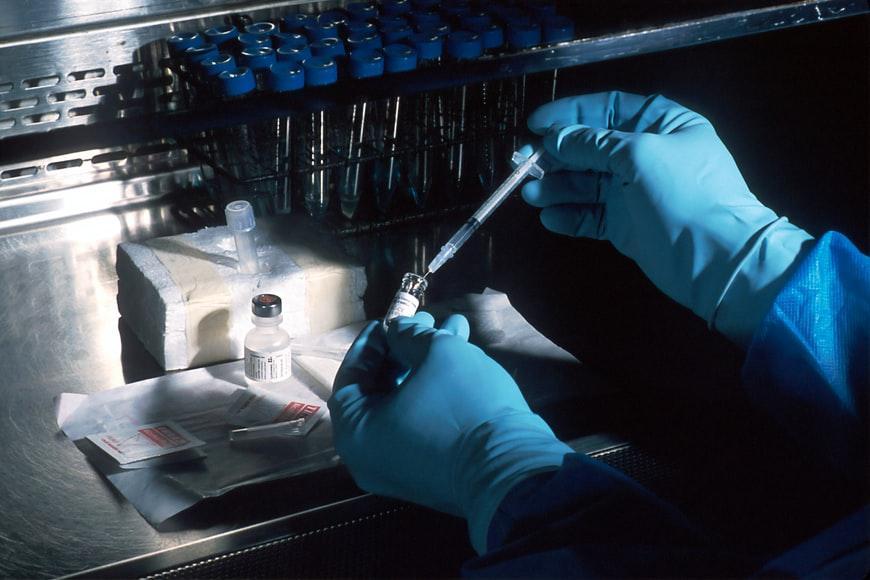Every service has a last mile – that final, physical meeting between consumer and provider. We tend to equate the “last-mile” concept with retail, with the delivery vans that move from distribution center to doorstep.
But healthcare has its last mile – and its last-mile frictions, too. That can mean scheduling the appointments, getting in the car, making one’s way to the doctor or provider – oftentimes dedicating a huge swath of the day to the task.
It’s no secret that the pandemic has forced us all to go online for daily interactions, and that telehealth has been widely adopted. But much of healthcare – such as the preventive efforts that can catch illnesses before they become life-threatening – is tangible, requiring needles, vials, labs and technicians.
We tend to skip appointments for the needed checkups, the blood draws and the other diagnostic tests that are so essential to treatment.
There’s a way to solve the last-mile gap here, as Sprinter Health co-founders Cameron Behar (CTO) and Max Cohen (CEO) told Karen Webster: Bring lab services and testing into the home environment – on demand.
“A lot can be done to solve the problem of access in healthcare,” said Cohen, who posited some key questions about access: “How can we try and get these critical diagnostics, especially these new generations of tests, to patients in a way that’s affordable, accessible, flexible – driving a great patient experience?”
To that end, Sprinter Health announced earlier this month that it has come out of stealth mode with a $33 million investment via Series A funding led by Andreessen Horowitz, with participation from General Catalyst, Accel, Google Ventures (GV) and other leading investors.
At a high level, the company said, Sprinter Health addresses the last mile in healthcare by making access to a range of tests and vitals checks as simple as ordering food to be delivered to the home.
In terms of the mechanics, “sprinters” – defined by Cohen and Behar as “tech-savvy phlebotomists” – conduct a range of at-home lab work services at a patient’s home, spanning blood draws, vitals checks, urine sample collection or COVID-19 checks.
The duo said that its technology uses real-time messaging to keep patients apprised about sprinters’ progress. They utilize a “checklist,” said Behar, to complete as services are performed.
Cohen and Behar, with stints at Google and Facebook, come from technology backgrounds, and both had fathers who were doctors. And Cohen, with a long history of suffering from an undiagnosed herniated disk, had firsthand experience with the problems that untreated conditions can cause.
“There’s some amazing technology coming out, but the problem is that it’s not getting in the hands of providers fast enough,” said Cohen. Or providers may have technology in hand, but patients lack access. Individuals may be homebound, or working parents may be unable to schedule time to get to the lab and have blood taken.
That’s a problem in a world where 70% of medical decisions start with a diagnosis, which in turn starts with a lab test. To get a sense of how the tech-enabled, on-demand model can solve for some of the frictions in the last mile of healthcare, Cohen pointed to pre-chemotherapy lab draws.
Cancer patients who travel for treatment have to visit the provider after having blood drawn the day before the treatment. They may be sent home before getting chemo if their white blood cell counts are not satisfactory, he said. But with in-home testing, said Cohen, “you get a text message that we’re on the way, you get a picture of who’s going to be showing up. We come in, and we’re in and out of the house. In under six minutes, we can get that test out” to be examined and confirmed by a physician that same day – paving the way for a timely chemotherapy session.
As Behar and Cohen explained, Sprinter Health can be viewed as an infrastructure play into the healthcare system, serving as connective tissue between patients and providers – at $79 a visit, which is cost-effective compared to in-office visits.
“We’re interested in creating something that helps both the health system to fill that chair, and the patient who doesn’t have to come in and miss work all day for something that ends up not even happening,” Cohen told Webster.
Getting to Scale
The company, which had a $4.6 million funding round in place before the Series A, has been teaming with specialty labs and remains in the early stages of partnering with several health systems as well, forging both a direct-to-consumer and partner-based ecosystem.
Looking ahead, the firm will expand geographically beyond California into Texas, Florida and other states. As the company scales, the duo said, it will look for a subset of the phlebotomist population that is comfortable with technology, with an eye on the fact that certification (to conduct the tests) can vary from state to state. A further goal is to have clusters of patients within cities and towns, which makes the sprinters’ journeys most cost-effective. Eventual payment models will include patient payments (the current model), co-pay and partner pay, said Cohen.
As Behar pointed out, though there has been tremendous growth in the telehealth space, “we know that they’re fundamentally going to be limited by the number of services they can offer with actual hands in the home. We’re hoping to be those kinds of clinical extenders for services like theirs – so they can actually help diagnose an ear infection by looking in your ear. They can actually look in your eyes and get those necessary diagnostics beyond blood draws.”
Link: https://www.pymnts.com/healthcare/2021/sprinter-health-aims-to-solve-healthcares-last-mile-with-on-demand-lab-tests/
Source: https://www.pymnts.com
















Leave a Reply